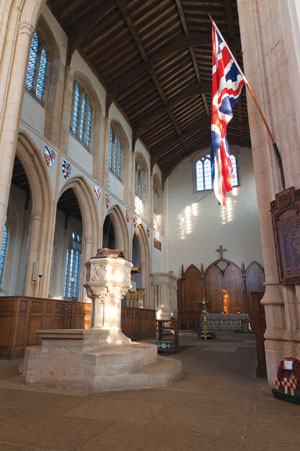
What follows is an article giving initial thoughts prepared by the FSSPX.News team. An official statement will be released from the General House of the Society of Saint Pius X in due course.
On July 16, 2021, Pope Francis issued a motu proprio whose title could be a harbinger of hope: Traditionis custodes, “Guardians of Tradition.” Knowing that he is addressing the bishops, one might begin to dream: might Tradition be recovering its rights within the Church?
On the contrary. This new motu proprio undertakes an elimination. It illustrates the precariousness of the current magisterium and signals the expiration date of Benedict XVI’s Summorum pontificum, which has not even celebrated its fifteenth anniversary.
Everything, or just about everything in Summorum pontificum, is scattered, abandoned, or destroyed. The purpose, moreover, is clearly stated in the letter which accompanies this liquidation.
The pope lists two principles “on how to proceed in dioceses”:
on the one hand, to provide for the good of those who are rooted in the previous form of celebration and need to return in due time to the Roman Rite promulgated by Saints Paul VI and John Paul II, and, on the other hand, to discontinue the erection of new personal parishes tied more to the desire and wishes of individual priests than to the real need of the 'holy People of God.'
A scheduled extinction
While Francis defends an endangered animal or plant species, he decides and promulgates the extinction of those who are attached to the immemorial rite of the Holy Mass. This species no longer has the right to live: it must disappear. And all means will be used to achieve this result.
And first, a strict reduction in freedom. Until now, the locations reserved for the ancient rite had a certain latitude of movement, a bit like reservations. Today we have switched to the zoo regime: cages, narrowly circumscribed and demarcated. Their number is strictly monitored, and once installed, it will be forbidden to provide any more.
The guardians - or should we say the jailers? - are none other than the bishops themselves.
All this is specified in article 3, §2: “The bishop of the diocese… . is to designate one or more locations where the faithful adherents of these groups may gather for the eucharistic celebration (not however in the parochial churches and without the erection of new personal parishes).”
The internal regulations of these jails are strictly controlled (article 3, §3): “The bishop … is to establish at the designated locations the days on which eucharistic celebrations are permitted using the Roman Missal promulgated by Saint John XXIII in 1962.”
This control extends to the least little detail (ibidem): “In these celebrations the readings are proclaimed in the vernacular language, using translations of the Sacred Scripture approved for liturgical use by the respective Episcopal Conferences.” No question of using Dom Lefebvre’s translation [or the Douay Rheims] or an old lectionary.
Euthanasia is envisioned for the specimens judged unsuitable for palliative care (article 3, §5): “The bishop is … to proceed suitably to verify that the parishes canonically erected for the benefit of these faithful are effective for their spiritual growth, and to determine whether or not to retain them.”
The reserve is abolished as a whole, since the Ecclesia Dei Commission disappears (article 6): “Institutes of consecrated life and Societies of apostolic life, erected by the Pontifical Commission Ecclesia Dei, fall under the competence of the Congregation for Institutes of Consecrated Life and Societies for Apostolic Life.”.
Migrants prohibited
While the pope does not stop caring for all types of migrants, the prisons he installs are strictly forbidden from all intrusion.
To be sure that wildcat reservations are not set up, the pope forbids any extensions of the prison
(article 3, §6): “The bishop (...) will take care not to authorize the constitution of new groups.”
This measure is akin to sterilization: it is forbidden to reproduce and perpetuate these savages of the past who must disappear.
This sterilization also concerns priests who will be ordained in the future (article 4): “Priests ordained after the publication of this Motu proprio, who intend to celebrate with the Missale Romanum of 1962, must make a formal request to the diocesan bishop who will consult the Apostolic See before granting the authorization.”
Regarding priests who already have authorization, they henceforth need a renewal of their “celebratory” pass, which is apparently a temporary visa (article 5): “Priests who already celebrate according to the Missale Romanum of 1962 should request from the diocesan bishop the authorization to continue to enjoy this faculty.”
Thus, if it is a question of restraining, reducing, or even destroying groups, the bishops have carte blanche, but if it there is a need to grant authorization, the pope does not trust them: it is necessary to go through Rome.
While dozens of priests, often supported by their bishops, have defied the Congregation for the Doctrine of the Faith by “blessing” homosexual couples, without any Roman reaction, except a veiled approval by Francis through his message to Fr. Martin, future priests will be closely watched if they are thinking about celebrating according to the Mass of St. Pius V.
Obviously, it is easier to conceal your lack of authority by terrorizing the faithful who will not resist, than to mitigate the German schism, believing there is nothing more urgent than striking this part of the flock.

Vaccination against “Lefebvrism”
The great fear of contamination by the Lefebvrist virus is exorcised by the obligatory Vatican II vaccine – from the Moderno laboratory, (article 3, §1): The bishop “is to determine that these groups do not deny the validity and the legitimacy of the liturgical reform, dictated by Vatican Council II and the Magisterium of the Supreme Pontiffs.”
And anything that could be a source of potential infection is eliminated without pity
(article 8): “Previous norms, instructions, permissions, and customs that do not conform to the provisions of the present Motu Proprio are abrogated.”
Carried away by his enthusiasm, the pope almost comes to the point of saying that it is the Old Mass which is a dangerous virus that must be defended against. Thus, in Article 1 he specifies: “The liturgical books promulgated by Saint Paul VI and Saint John Paul II, in conformity with the decrees of Vatican Council II, are the unique expression of the lex orandi of the Roman Rite.”
If the Novus ordo is the soul expression of lex orandi, how is the Tridentine Mass to be qualified? Is it in a state of liturgical or canonical weightlessness? Does it not even have a right to a place beside the Dominican Rite, the Ambrosian Rite, or the Lyonnais Rite in the Latin Church?
This is what seems to emerge from what the pope says in the letter accompanying the motu proprio. Without seeming to suspect the paralogism he is committing, he writes: “I take comfort in this decision from the fact that, after the Council of Trent, St. Pius V also abrogated all the rites that could not claim a proven antiquity, establishing for the whole Latin Church a single Missale Romanum. For four centuries this Missale Romanum, promulgated by St. Pius V was thus the principal expression of the lex orandi of the Roman Rite, and functioned to maintain the unity of the Church.”
The logical conclusion which flows from this comparison is that this rite must be maintained. Especially as the bull Quo primum of St. Pius V protects it from all attacks.
This was confirmed by the commission of cardinals convened by John Paul II, who said almost unanimously (8 out of 9) that a bishop could not prevent a priest from celebrating it, after unanimously stating that it had never been forbidden.
And this is what Pope Benedict XVI accepted and endorsed in Summorum pontificum.
But for Francis, the ancient rites maintained by St. Pius V, including the Tridentine Mass, seem to have no unifying value. The new rite alone, with its fifty years of existence, infinite variations, and innumerable abuses, is capable of giving liturgical unity to the Church. The misunderstanding is glaring.
Returning to his idea of eliminating the species, the pope writes to the bishops: “It is up to you to proceed in such a way as to return to a unitary form of celebration, and to determine case by case the reality of the groups which celebrate with this Missale Romanum.”
A law clearly opposed to the common good
The general impression that emerges from these documents – the motu proprioand the accompanying letter from the pope - gives the impression of sectarianism coupled with an overt abuse of power.
The traditional Mass belonging to the most intimate part of the common good in the Church. Restricting it, pushing it into ghettos, and ultimately planning its demise, can have no legitimacy. This law is not a law of the Church, because, as St. Thomas says, a law against the common good is no valid law.
There is also, in the ins and outs, an obvious tinge of the resentment manifested by certain angry proponents of the liturgical reform against the traditional mass. The bankruptcy of this reform is underlined, as in a chiaroscuro, by the success of Tradition and the Tridentine Mass.
That’s why they cannot take it. No doubt imagining that its total disappearance will make the faithful return to churches emptied of the sacred. Tragic mistake. The magnificent development of this celebration worthy of God only underscores their poverty: it is not the cause of the desertification produced by the new rite.
The fact remains that this motu proprio, which will sooner or later end in the oblivion of the history of the Church, is not good news in itself: it marks an abrupt end in the reappropriation of its Tradition by the Church, and it will delay the end of the crisis which has already been going on for more than sixty years.
As for the Society of Saint Pius X, it finds there a new reason for loyalty to its founder, Archbishop Marcel Lefebvre, and admiration for his foresight, his prudence, and his faith.
While the traditional Mass is in the process of being phased out and the promises made to the Ecclesia Deisocieties are so well kept, it finds in the freedom left to it by its iron bishop, the possibility of continuing to fight for the faith and the reign of Christ the King.










